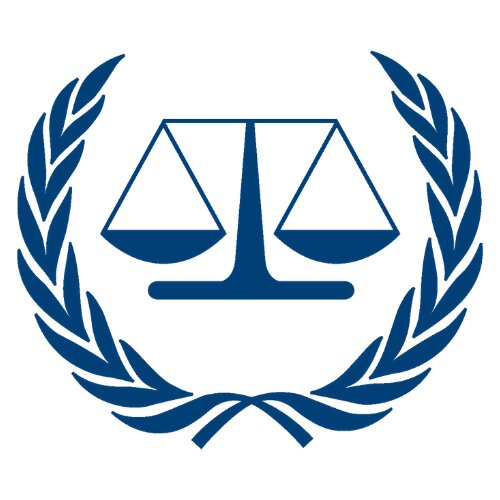Best Employment Rights Lawyers in Indonesia
Share your needs with us, get contacted by law firms.
Free. Takes 2 min.
Or refine your search by selecting a city:
List of the best lawyers in Indonesia
About Employment Rights Law in Indonesia
Employment rights in Indonesia are governed by a comprehensive set of laws and regulations designed to protect workers and ensure fair treatment in the workplace. The foundational legislation is the Manpower Act (Law No. 13 of 2003), which outlines the rights and responsibilities of employers and employees. This law covers various aspects, including labor contracts, wages, working hours, occupational safety, and dispute resolution mechanisms. The Omnibus Law on Job Creation, enacted in 2020, introduced amendments to labor laws, aiming to improve the investment climate and simplify business processes while balancing workers' rights.
Why You May Need a Lawyer
There are several situations where individuals might require legal assistance concerning employment rights:
- Disputes over employment contracts and termination.
- Issues related to unpaid wages or unlawful deductions.
- Concerns regarding workplace discrimination or harassment.
- Claims about unsafe working conditions or occupational safety violations.
- Understanding complex changes in employment laws and how they impact your rights.
- Navigating negotiations for severance pay or settlement agreements.
- Ensuring compliance with both local and international labor standards.
Local Laws Overview
Some key aspects of local employment laws in Indonesia include:
- Labor Contracts: Employment relationships need to be defined by clear labor contracts, either for a specific time (PKWT) or for an indefinite period (PKWTT).
- Wage Requirements: Employers must comply with regional minimum wage standards, and wages must be paid regularly and without delay.
- Working Hours: Standard working hours should not exceed 40 hours per week, with overtime compensated appropriately.
- Leave Entitlements: Employees are entitled to annual leave, sick leave, maternity leave, and other statutory leave types.
- Termination Procedures: Termination of employment must adhere to strict legal procedures, including proper notice and severance payments.
- Social Security: Employers must register workers for social security programs, covering health care, work injuries, old-age benefits, etc.
Frequently Asked Questions
1. What are my rights if I am unfairly dismissed?
If you believe your dismissal was unjust, you can contest it through the Industrial Relations Court. It is important to gather evidence and seek legal advice to strengthen your case.
2. Are employers required to pay overtime?
Yes, employers must pay overtime for additional work beyond the standard 40-hour workweek, as per the rate stipulated by labor laws.
3. How is the minimum wage determined in Indonesia?
The minimum wage is determined annually based on the cost of living and is set by regional governors, taking into account national economic conditions.
4. What protections do I have against workplace harassment?
Employees are safeguarded against harassment under the Indonesian labor laws, and companies are required to prevent and address any harassment incidents actively.
5. What steps should I take if my employer is not paying social security?
You can report the issue to the Social Security Administering Body (BPJS) for further investigation and enforcement actions against the employer.
6. Can my employer change my employment terms unilaterally?
Any significant modification to employment terms should be mutually agreed upon, and unilateral changes could be contested legally.
7. How do I handle contract disputes?
For contract disputes, employees can use mediation services or, failing resolution, take the dispute to the Industrial Relations Court.
8. What are my leave entitlements as an employee in Indonesia?
Employees are entitled to at least 12 days of annual leave, sick leave, and specific leave for family or personal matters as provided by law.
9. What can I do if my working conditions are unsafe?
You should report unsafe conditions to your employer or the Ministry of Manpower for inspection and corrective action, if necessary.
10. Is it mandatory for employers to provide training to employees?
While not mandatory, employers are encouraged to provide training and skill development to enhance workforce competency and productivity.
Additional Resources
For further support and guidance on employment rights in Indonesia, you can reach out to the following organizations:
- The Ministry of Manpower (Kementerian Ketenagakerjaan) - for official regulations and workforce-related inquiries.
- BPJS Ketenagakerjaan (Social Security Administering Body for Employment) - for social security matters.
- Legal Aid Organizations - provide free or low-cost legal assistance to workers experiencing employment disputes.
Next Steps
If you need legal assistance regarding employment rights in Indonesia, consider taking the following steps:
- Document everything: Keep records of employment contracts, communications, and any incidents that relate to your issue.
- Consult a lawyer: Seek legal advice from an employment lawyer experienced in Indonesian labor law.
- Engage in mediation: Attempt to resolve disputes amicably through mediation before resorting to legal action.
- File a claim: If necessary, submit a formal complaint to the appropriate governmental body or court.
Lawzana helps you find the best lawyers and law firms in Indonesia through a curated and pre-screened list of qualified legal professionals. Our platform offers rankings and detailed profiles of attorneys and law firms, allowing you to compare based on practice areas, including Employment Rights, experience, and client feedback.
Each profile includes a description of the firm's areas of practice, client reviews, team members and partners, year of establishment, spoken languages, office locations, contact information, social media presence, and any published articles or resources. Most firms on our platform speak English and are experienced in both local and international legal matters.
Get a quote from top-rated law firms in Indonesia — quickly, securely, and without unnecessary hassle.
Disclaimer:
The information provided on this page is for general informational purposes only and does not constitute legal advice. While we strive to ensure the accuracy and relevance of the content, legal information may change over time, and interpretations of the law can vary. You should always consult with a qualified legal professional for advice specific to your situation.
We disclaim all liability for actions taken or not taken based on the content of this page. If you believe any information is incorrect or outdated, please contact us, and we will review and update it where appropriate.
Browse employment rights law firms by city in Indonesia
Refine your search by selecting a city.















